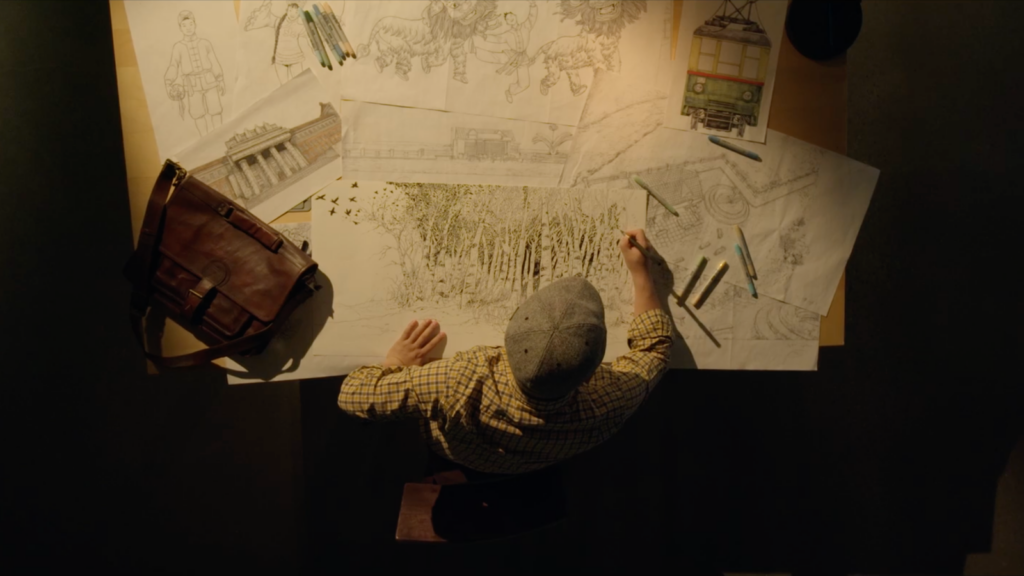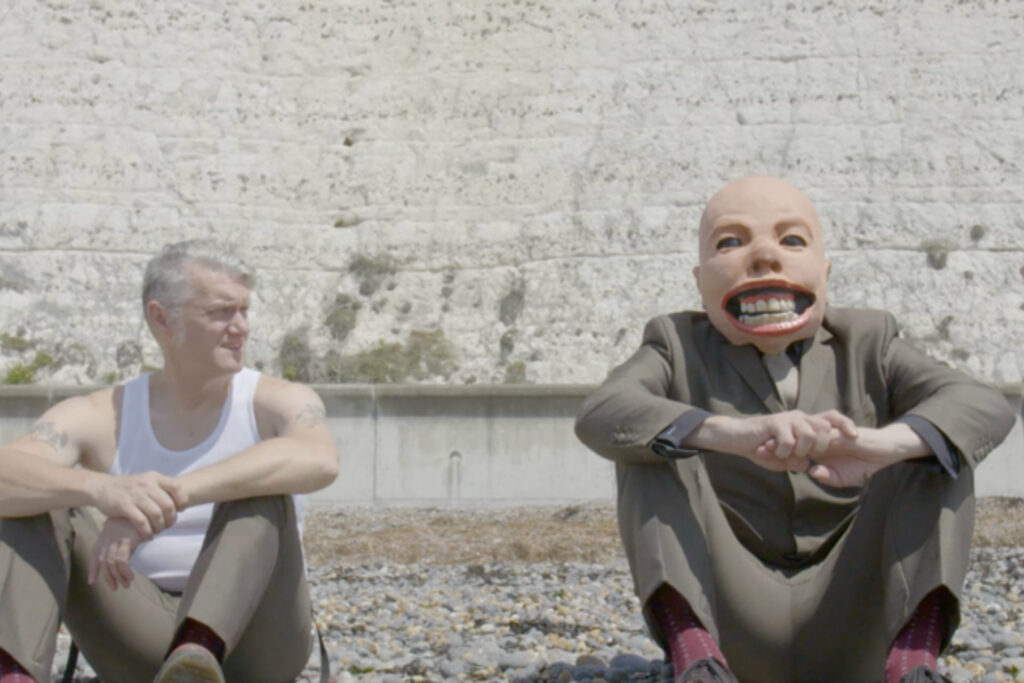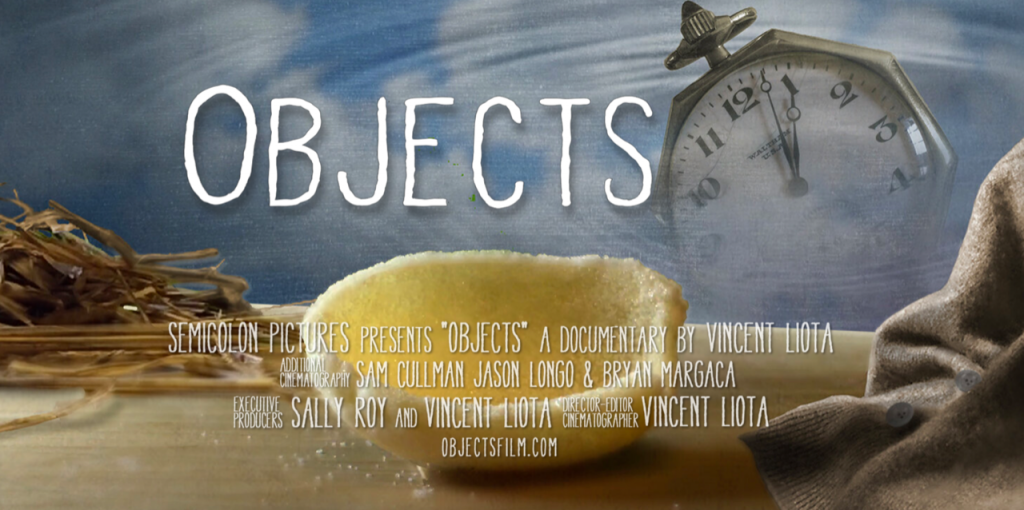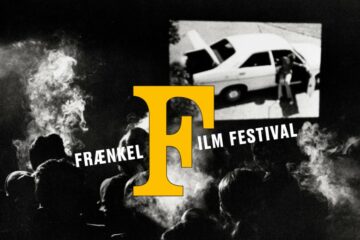The 2022 S.F. DocFest Is Here, In Person!
Black beer brewers, the history of Throbbing Gristle, and a few films that will annoy the Chinese government are among the offerings at the 21st San Francisco Documentary Film Festival (hereafter “DocFest”). This year’s festival, which will run from June 1-12, 2022, boasts a mix of 36 features and 58 shorts from a variety of countries. DocFest will deliver both in-person and online screenings. The in-person screenings will take place at the Roxie Theater from June 1-9. Attendees should wear masks, and must have proof of vaccination or a negative COVID test within the last 48 hours. The online screenings run from June 1-12.
Admittedly, a few offerings such as “The Time of the Fireflies” and “We Were Hyphy” have already been shown at previous SF Bay Area film festivals. But if the viewer’s missed those earlier screenings, the DocFest appearances offer a second chance to catch up.
For example, one of the two films kicking things off on Opening Night is Jeff Adachi and Chihiro Wimbush’s Ricochet. It’s about a local tragedy of a few years ago that unfortunately made national headlines. When undocumented immigrant Jose Ines Garcia Zarate accidentally causes a gun to discharge at San Francisco’s Pier 14, the stray bullet that shot out would ricochet and kill young white tourist Kate Steinle. Prominent racist The Orange Skull would exploit the popular outrage, just as he did with the Central Park Five. Riding that outrage helped propel his corrupt posterior into the White House. Meanwhile, San Francisco Public Defender Adachi and his team would fight an uphill battle in both the criminal courtroom and the court of public opinion to see justice done for Zarate.
For viewers who have already seen “Ricochet” at CAAMFest, the other Opening Night Film might do instead…unless they’re fans of the Chinese government’s political repression. In Jason Loftus’ semi-animated feature “Eternal Spring,” illustrator Daxiong has little love for the Falun Gong activists who committed a high profile hack of Chinese state television. The intense police crackdown in the wake of the hack led to Daxiong’s fleeing to North America. When the artist meets the lone survivor of that hack in Seoul, the encounter inspires Daxiong to use his art to retell the survivor’s story of the events leading up to the hack and the hack’s aftermath.
A different type of survival is recounted in Irene Lusztig’s short film “Contents Inventory.” The subjects of this film (including the director) have one thing in common: they lost their homes in the CZU Lightning Complex wildfire. The titular inventory refers to the insurance company requirement of listing every single item lost in the home before a single dime is paid out. Lusztig and her neighbors flip the script by creating an inventory of their lost sense of home and an account of lives still left materially empty after the news cameras stop paying attention to the disaster’s aftermath.
What is it like squatting in an abandoned house? Irina, the subject of Anouk Meissner’s short “Nobody Owns Me,” offers a personal look at such a life and the found family she has established with her squat mates.
If you’ve ever seen the Agnes Varda short “Uncle Yanco,” you saw what life was like for one person who lived on a houseboat in Sausalito’s harbor in October 1967. Katie Bernstein and Clara Mokri’s short “Anchored Out” offers a portrait of the present-day Sausalito houseboat community. Yes, there are still residents ranging from mariners to those who couldn’t afford to live elsewhere in the Bay Area. Unfortunately, everybody from the Sausalito harbormaster to the rich people who now dominate Sausalito life want these houseboaters gone yesterday.
The December 1955 news squib was terse: in Miami, a Black woman and a white man were arrested at a motel for “vagrancy.” But Gaspar Gonzalez’ short “A Date, With History” shows just how much more there was to the story. This probable meeting for sex was a violation of Miami’s strict segregation laws. What happened to this couple says something about the American society certain rabid right-wing Supreme Court Justices are attempting to resurrect.
Once you stop being a political radical, can you ever return to it? That’s the question facing Dunstan Bruce, one of the founding members of the anarcho-punk band Chumbawumba. In Dunstan Bruce and Sophie Robinson’s “I Get Knocked Down,” Bruce is pissed off by the state of the world yet he feels that at age 59 there’s f**k all he can do about it. Enter Babyhead aka the spirit of Bruce’s anarchist past. The ghost takes the ex-rocker on a journey into Bruce’s bygone days to help the ex-musician rediscover and reawaken his old anarchist mojo.
Some previous DocFest attendees may remember “Iconicity,” a feature about the Southern California desert art scene which mentioned the Noah Purifoy Outdoor Museum in one sequence. Now Jesse Lerner and Sarah Harris’ feature “The Fragmentations Only Mean…” gives a longer tour of the Purifoy sculpture museum. Its artworks are notable for turning found objects into pieces commenting on such subjects as race relations, contemporary philosophy, and human interactions with the environment.
Olivia Martin McGuire’s hand-drawn animated short “Freedom Swimmer” looks at two acts of political protest against Chinese government oppression. During the Cultural Revolution, one man was among those escapees who swam from China to Hong Kong. During the protests over Hong Kong’s repressive National Security Law, the man’s granddaughter faces increasing pressure to escape Hong Kong before the law takes effect.
Are personal memories forever lost as a result of a brain injury? For director Timothy O’Donnell, the question is personal as the injury-afflicted person is his father. O’Donnell’s feature “The House We Lived In” follows a decade-long effort to help his father recover his memories via projected installations. But how will O’Donnell and the other family members react when the patriarch’s memories transform into dreams?
The Centerpiece Film slot goes to Kelly Duane de la Vega and Zandashe Brown’s “In The Bones.” Its portrait of present-day America and the burdens women live under follows a dozen people from three different areas of Mississippi. How are these subjects personally affected by a state legislative session where the issues of equal pay for equal work and abortion rights are being decided?
Meet political organizer Clarissa Doutherd. She’s a single mother getting low and middle income parents to join together in the nationwide fight for child care and early education funding. As Tamara Perkins’ feature documentary “Clarissa’s Battle” shows, Doutherd’s motivation comes from previous hardships resulting from losing child care and becoming unhoused. But will the stresses of activism, raising a child, and the coronavirus lockdown combine to end Doutherd’s efforts?
Thanks to right-wing misinformation and easily spooked liberal politicians, the phrase “defund the police” might as well be an expletive. But to La Toya Fernandez, Beija Gonzalez, and Laurie Valdez, “defunding the police” means reallocating government resources away from disciplining children to providing counseling and other resources for troubled youth so they have a chance to escape the school-to-prison pipeline. Goran Zaneti and Skyler Glover’s short “innocence.” follows these San Jose, California activists’ efforts to get police out of the schools.
From the outside, the Sacramento home of William Jennings looks like that of any other retiree. But as Damien McDuffie’s short “Into The Archives: The Black Panthers In Augmented Reality” shows, Jennings’ home holds a historical treasure trove. For Jennings, as Billy X, was an O.G. Panther who was also the group archivist. His house teems with original Panther newspapers, pictures, and other memorabilia. Unfortunately, nothing’s been done to preserve any of this material in cyberspace…
Beer may have roots in Africa and Egypt, but that fact’s certainly not reflected in America’s craft brewing culture. Aaron Hose’s feature “One Pint At A Time” introduces viewers to the Black brewers and influencers hoping to shift American perceptions of the craft beer industry.
Max Good’s feature “The Assassination And Mrs. Paine” introduces viewers to the titular Ruth Paine. To the ordinary eye, she’s just an 85-year-old widow living quietly in a Quaker retirement home. But to researchers into the JFK assassination conspiracy, Mrs. Paine’s friendship with Marina and Lee Harvey Oswald as well as her role as a key witness has marked her for over six decades as a person of interest.
Yang Yang’s personal documentary “You Are The Days To Come” takes viewers back to 1980s Beijing. Here, she watched artists and musicians create works that demanded freedom. As the film introduces six artists whose works embodied a generation’s dreams of revolution, the Chinese government’s eventual ruthless crushing of those dreams in the 1989 Tiananmen Square massacre waits in the historical wings.
Get a glimpse of what it feels like to grow up in today’s world with Alexis Neophytides’ work-in-progress feature “Dear Thirteen.” It follows nine thirteen-year-olds from around the world as they deal with such big issues as rising anti-Semitism in Europe, the easy prevalence of guns in America, and the changing face of gender identity.
Female graffiti and street artists have been around since this artistic movement’s beginnings. Yet no female street artist has achieved the name recognition of Banksy or Shepard Fairey. Alexandra Henry’s feature “Street Heroines” aims to change that lack of recognition with this globetrotting tour of female street artists using their art to challenge sexism. The film particularly follows three Latina street artists from New York City, Mexico City, and Sao Paulo trying to establish their artistic identities in this male-dominated subculture.
In the early 1990s, it was thought in the movie industry that creating realistic creatures via computer for the silver screen was a technical impossibility. But computer animator Steve “Spaz” Williams thought otherwise. Scott Lebrecht’s feature tells the story of how Williams’ willingness to challenge conventional wisdom eventually led to the realistic dinosaurs that graced the film “Jurassic Park.” Yet Williams would pay a heavy price for his rebellion.
In the British industrial town of Hull, a nihilistic avant-garde collective was born in the late 1970s and would go on to change the face of music. The COUM Transmissions, as this collective was called, specialized in in-your-face busting of taboos surrounding sex, violence, and self-mutilation. Artists Genesis P-Orridge and Cosey Fanni Tutti would eventually mutate COUM into the notoriously transgressive industrial/noise band Throbbing Gristle. Marcus Werner Hed and Dan Fox’s feature “Other Like Me – The Oral History Of COUM Transmissions & Throbbing Gristle” allows the group’s former members to tell their story on screen for the first time.
Despite being no bigger than a small apartment, the late great Aquarius Records was one of the places that gave S.F.’s Mission District a cachet of coolness. For 47 years, this independent record store championed making local, underground, independent, and otherwise challenging music available to the masses. Kenneth Thomas’ feature “It Came From Aquarius Records” tells the story of this much-missed establishment.
For a generation of TV viewers, the late Pedro Zamora epitomized for them the tragedy of AIDS. A member of MTV’s “The Real World – San Francisco” series, Zamora was an AIDS activist who insisted, even as he was declining from the disease, that the camera crews keep filming him. Stacey Woelfel and William T. Horner’s feature “Keep the Cameras Rolling: The Pedro Zamora Way” brings Zamora’s brief existence to life. Fellow “Real World – San Francisco” cast members Judd Winick and Pam Ling will appear in person after the screening.
Why do people collect and cherish such celebrity knickknacks as a lollipop, a shower curtain, or a teacup? Annie Berman’s feature “The Faithful: The King, The Pope, The Princess” follows over 20 years some incredibly devoted fans of Pope John Paul II, Elvis Presley, and Princess Diana and shows just how deep veneration defines her film’s subjects.
Would you consider a fifty-year-old clump of grass, a French actress’ former sweater, or a forty-year-old sugar egg to be objects worth keeping? For the subjects of DocFest’s Closing Night Film “Objects,” these apparently worthless objects are actually emotional treasures. Let director Vincent Liota show how these objects serve as touchstones to important personal memories or experiences.
The other Closing Night Film for this year’s DocFest takes viewers to internationally occupied Afghanistan. The European Union’s monetary aid helps support an Afghan justice system that sees nothing wrong with imprisoning two women for committing “moral crimes.” But in the Afghan justice system, the label covers such things as getting raped and impregnated by one’s uncle and fleeing an abusive husband. However, Gulnaz and Farida, the two women in question, have no intention of throwing themselves on the alleged mercies of the Afghan courts. Sam France and Clementine Malpas’ rousing feature “With This Breath I Fly” recounts these two women’s struggle for freedom from Afghanistan’s justice system and their efforts to hold the European Union accountable for censoring their voices.
(Broke-Ass Stuart is a media sponsor of the festival.)














